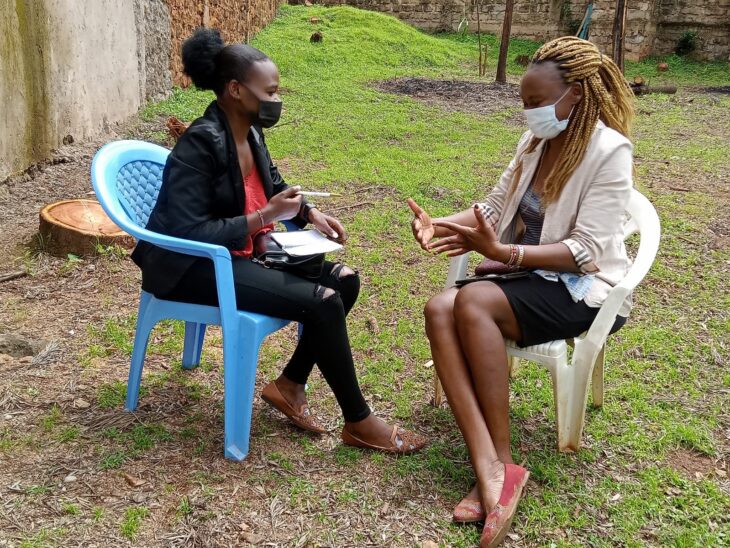KISII, Kenya, Dec 9- The 2030 Agenda for Sustainable Development recognizes equal and secure land rights for women as integral to attaining the global goals of ending poverty and hunger and realizing a more gender-equitable world.
In Africa, women may have the right to use land, but in many circumstances, these rights hinge on their relationship to a man: a husband, father, brother, or other male relatives.
If that man dies or becomes estranged, women may be forced off their land and out of their homes, with little or no recourse.
The main source of restriction is customary laws and practices, which continue to prohibit women from owning or inheriting land and other forms of property.
In Kenya, the 2010 Constitution and various international laws and statutes protect women’s rights to land and property ownership in practice however and, women and girls remain disadvantaged and discriminated against.
At the Kisii law courts, 725 land succession cases were filed in the lower courts’ registrar between January 2021 to November 30th this year with 20 percent determined cases while 13 succession cases were filed in the registrar of the High Court since January this year up to end of November and none of the cases have been determined. Also, eight cases were filed in the High Court’s registrar in 2020.
Mercy Nyaboke from Nyatieko ward in Marani Sub- County narrated to Shahidi News how her family has been denied from participating in land succession by the extended family due to retrogressive traditional beliefs which limit her mother and the younger sister from owning the land.
Nyaboke was born the second born in a family of three kids, one boy and two girls, life was smooth when they were young as they enjoyed good family relationships with her parents, aunts, uncles, and cousins.
“Things changed when my brother died in 2011, We were living in Mombasa. My parents decided to relocate and settle home with our extended family. Here family disputes started and blame were made up to get my mother out of this family since the only boy who died was not there to inherit the land as per the Kisii culture,” she said during an interview with Shahidi News.
At this time, she was forced to travel upcountry to stay with her parents.
Things did not change, the aunts and an uncle continued with threats, intimidation, and attacks from no grounds without speaking the root cause of land succession.
“I told our large family, I wanted succession to be done for my mother to be given her title deed. Everyone shut me down including my father,” she said.
At this point, she moved to the Deputy County Commissioner to seek help.
There, the area chief was called and sent to the family to substantiate what was happening, he called a Baraza (public meeting). But the meeting was unsuccessful since the succession issue was never addressed.
“The attackers who are my male cousins and uncle became rough on us, there was a time I was from town at 7:00 pm, they waited for me on the road and attacked me. I screamed and my mother and other neighbors came for my help. I reported the matter to the police,” she said.
Her attackers were summoned to appear before the DCI officers. Nothing much happened.
After a few days, the chief went to their homestead and ordered them to demolish a section of their house, and yet no succession had been done.
Her mother had also planted some trees within the disputed piece of land but they were uprooted by unknown people.
Chairman of the Law Society of Kenya South West branch Wilkins Ochoki says the 2010 constitution and succession Act allows children to inherit land from their parents.
He noted the written laws take presidency over customary laws, saying traditional beliefs are not considered in succession matters.
“Succession and Matrimonial Acts do not advocate for one to disinherit land and property because of gender, “said Ochoki.
He added, attempts to disinherit someone because of gender is illegal and unconstitutional.
Speaking to Shahidi News, Kenya National Commission on Human Rights Chief Executive Officer Dr. Bernard Mogesa said lack of enforcement of the legal framework on land ownership by women remains the greatest challenge.
Dr. Mogesa said poor enforcement architecture and limited information on available remedies to women further complicates their ability to claim rights of ownership of land in Kenya.
“Even where remedies are available, the wheels of justice are slow as the judiciary is faced with an ever-increasing caseload and providing remedial action from the courts takes many years, “said the KNCHR CEO.
He noted other alternative justice systems and Alternative Dispute Resolutions (ADR) are in many instances dismissed by the parties that have lost the case, thus rendering this remedial option an exercise in futility.
56-year-old Mary Moraa said, after her father died, the brothers wanted to exclude them from inheriting her father’s piece of land; she was forced to file a succession case in court.
“It took us three years, with my sisters, we felt like giving up since it was expensive paying the advocates and also time-consuming, “she said.
Finally, the court ruled that all children of her late father were entitled to equal share and they were given rightfully what belonged to the family.
Want to send us a story? Contact Shahidi News Tel: +254115512797 (Mobile & WhatsApp)


